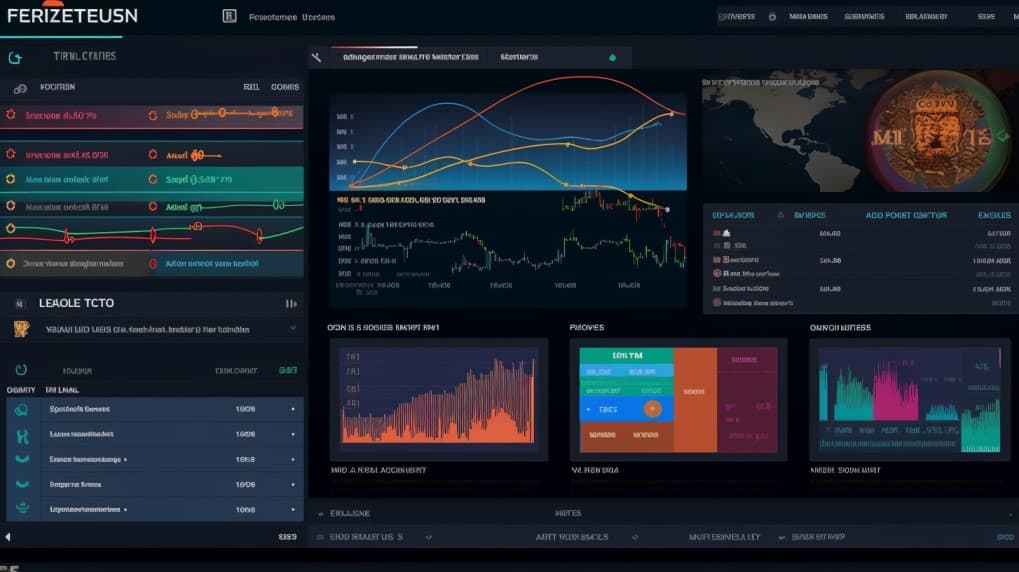
How does the RWM ETF work?
In the world of finance, exchange-traded funds (ETFs) have become a popular vehicle for investors seeking diversification, liquidity, and cost-effective solutions. Among these, the RWM ETF stands out for unique reasons. In this article, we'll delve into the workings of the RWM ETF, its underlying exposure, the benefits of investing, and considerations to be aware of.
RWM ETF
The RWM ETF is a short, or inverse, ETF that seeks to replicate the inverse performance of the Russell 2000 Index. This index is comprised of small-cap companies within the US stock market. An inverse ETF is designed to profit from a decline in the value of an underlying benchmark. Therefore, when the Russell 2000 Index goes down, the RWM ETF is designed to go up, and vice versa.
RWM ETF
The RWM ETF tracks the inverse of the daily performance of the Russell 2000 Index. Instead of investing in the stocks of the Russell 2000 Index directly, the RWM ETF uses various financial instruments, including derivatives, to achieve its objective.
For instance, the RWM ETF might enter into swap agreements with other financial institutions. These agreements would pay the ETF if the Russell 2000 goes down, thus giving the ETF its inverse exposure. Another approach is the use of futures contracts tied to the Russell 2000 Index. By shorting these futures, the RWM ETF can profit from declines in the index.
 RWM overlap How does work the RWM ETF?
RWM overlap How does work the RWM ETF?
RWM ETF: Benefits of Investing
Hedging: Investors can use the RWM ETF to hedge against potential downturns in the small-cap segment of their portfolio. If one believes that small-cap stocks might face a period of decline, the RWM ETF can be an effective tool to offset potential losses.
Diversification: While inverse ETFs are unique, they can add a different dimension to a well-diversified portfolio, providing potential gains during bear markets.
Liquidity: Being an ETF, RWM offers the benefit of intraday trading, allowing investors to enter or exit their positions during trading hours, just like individual stocks.
Transparency: Daily holdings and performance of the RWM ETF are made available, giving investors a clear picture of where their money is.
RWM ETF: Considerations Before Investing
Inverse Relationship: Investors should be aware that the RWM ETF is designed to move in the opposite direction of the Russell 2000 Index. This means that if the index goes up, the RWM ETF will likely go down.
Leverage: While the RWM ETF is not leveraged, other inverse ETFs might employ leverage to magnify returns. It's crucial to differentiate and understand the implications.
Daily Reset: The RWM ETF rebalances daily, which can lead to compounding effects over time. This means that the performance of the ETF over periods longer than one day can vary significantly from the inverse performance of the index.
Costs: Inverse ETFs, including the RWM ETF, tend to have higher expenses than their long counterparts, mainly due to the costs associated with the financial instruments they utilize.
Short-Term Nature: Given the compounding effects, inverse ETFs like the RWM ETF are generally more suitable for short-term trading rather than long-term holding.
Conclusion
The RWM ETF provides a unique investment vehicle for those looking to capitalize on potential downturns in the small-cap sector or hedge existing positions. While it offers several benefits, understanding its mechanics, the daily rebalancing, and the costs associated with it is paramount. Always conduct thorough research and consult with a financial advisor before adding complex financial instruments like the RWM ETF to your portfolio.
Sources:
[RWM ETF Official Website]
[Investopedia: Understanding Inverse ETFs]
[Russell 2000 Index Overview]
[ETF.com: A Deep Dive into Inverse ETFs]
RWM ETF issuer
RWM ETF official page
RWM quote and analysis
Discover the top holdings, correlations, and overlaps of ETFs using our visualization tool.
Our app allows you to build and track your portfolio.
To learn more about the RWM ProShares Short Russell2000, access our dedicated page now.
FAQ
What is the RWM ETF?
The RWM ETF is an exchange-traded fund that provides investors with exposure to a specific sector.
What is the underlying index that the RWM ETF aims to track?
The RWM ETF aims to track the performance of a specific index, which includes companies involved in its respective sector.
What types of companies are included in the RWM ETF?
The RWM ETF includes companies from its focused industry.
How does the RWM ETF work?
The RWM ETF functions by pooling investors' capital to purchase a diversified portfolio of sector-related stocks.
What are the advantages of investing in the RWM ETF?
Investing in the RWM ETF offers exposure to a specialized sector with potential for growth.